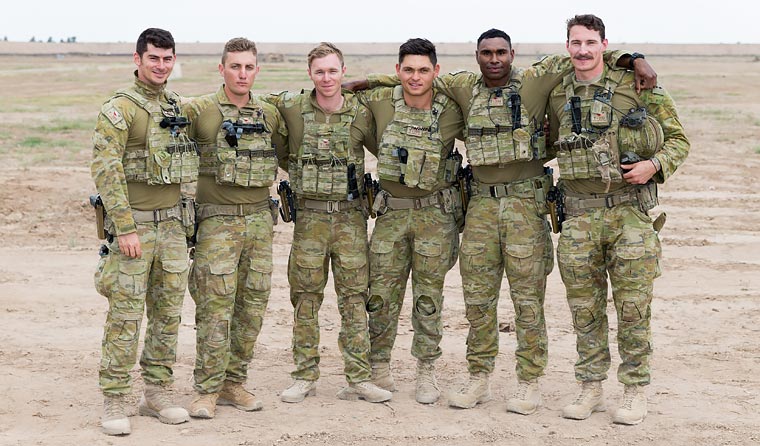News
Young returning veterans at high risk of mental health issues
A new report investigates the high rate of mental ill-health facing younger defence personnel, and how to provide better support.
 Young ADF veterans have the highest rates of mental-ill health among their colleagues, including issues such as PTSD and suicide.
Young ADF veterans have the highest rates of mental-ill health among their colleagues, including issues such as PTSD and suicide.
The experiences people face in combat are extreme.
Chris May, a soldier who left Australia to serve in Afghanistan as a 19-year-old in 2009, saw heavy fighting, explosions and dying children. His vehicle was struck by a roadside bomb and he was sent home with a brain injury and post-traumatic stress disorder (PTSD) at the age of 27.
‘For military and first responders, PTSD is a normal response to a completely abnormal situation,’ he told the ABC last year.
‘Exploring what it is is terrifying in itself because you don’t want to go find those emotions.’
Orygen and Phoenix Australia have co-authored a new report into the mental health of young ex-serving Australian Defence Force (ADF) personnel.
The next post: Young people transitioning from military service and mental health (the report) explores the kinds of issues faced by young veterans like Chris May.
The report details some concerning statistics. For example, while young men and women make up only a quarter of full-time serving personnel in the ADF, theyhave the highest rate of mental ill-health among their colleagues, including conditions such as panic attacks, alcohol-use disorders and depression.
Ex-serving male personnel aged 18–24 have a suicide rate twice high as other Australian men of the same age.
‘This increased risk of mental ill-health could be attributed to a number of factors, including exposure to potentially traumatic events on operations, or leaving the service involuntarily,’ Orygen senior research fellow Dr Simon Rice said.
‘The loss of the protective factors the military provides, including social support and a sense of belonging and identity, can affect the mental health of young ex-serving personnel, leaving many feeling unprepared for civilian life.’
 Reports have found that ex-serving male personnel aged 18–24 have a suicide rate twice high as other Australian men of the same age.
Reports have found that ex-serving male personnel aged 18–24 have a suicide rate twice high as other Australian men of the same age.
The report, which gathered information from young veterans, the ADF, the Department of Veterans’ Affairs, and mental health service providers, identifies key risk factors and gaps in services for young veterans:
- Short service periods of four years or fewer
- Barriers to services, such as culture, stigma or awareness
- Non-voluntary separation, such as being discharged early for injury
- A loss of protective factors, such as social support and belonging, or difficulty in transitioning to civilian life.
Young veterans identified key issues where there could be greater opportunities for intervention:
- More structure in transition and post-transition support services
- A need to acknowledge that many young people may find it difficult to become engaged with services during or post transition
- The mental health consequences of military culture and training on a young person’s developing self-identity
The report offers three key recommendations to provide better support for young veterans and help reduce high rates of mental illness and suicide.
First, that mandatory psychosocial health assessment should be undertaken for all young people leaving the ADF in order to help identify and channel them to the most appropriate services.
Second, establishing targeted support hubs for young ex-service personnel to help them transition into non-military life.
Finally, improving engagement, a particular problem for young veterans, starting during recruitment, initial training and in their first year of service.
‘It is especially important for young ex-serving people that we proactively engage with them, provide them with advice and support, and make treatment services easily accessible, including after individuals have transitioned out of the military,’ Phoenix Australia head of policy and practice Associate Professor Darryl Wade said.
The report also notes that GPs have an important role in veterans’ transition period as an accessible entry point into the public health system.
GPs can make use of the Medicare Benefits Schedule item for an
ADF post-discharge GP health assessment, which promotes early detection and intervention for mental and physical health concerns and includes screening for alcohol and other drug use, psychological distress, PTSD, risk of harm to self or others and anger problems.
Australian Defence Force mental health veterans' health
newsGP weekly poll
Health practitioners found guilty of sexual misconduct will soon have the finding permanently recorded on their public register record. Do you support this change?